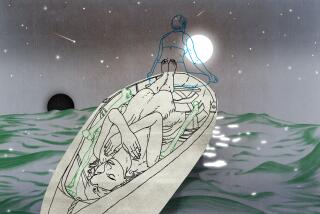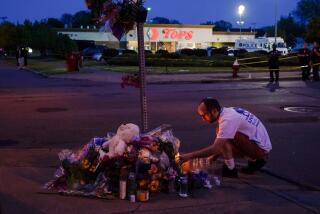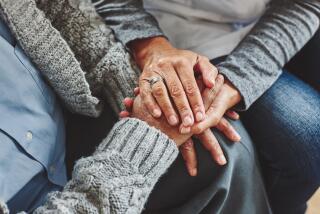‘Death Is Not a Disease’
- Share via
I, like Judith Paterson (“Death is Not a Disease,” Op-Ed Page, Nov. 27), am greatly disturbed by the medical profession’s lack of acceptance of death as a natural life process. My father, like her grandmother, had a combination of emphysema (although he had not been a smoker) and heart problems. At 83, he had been on oxygen 24 hours a day for over a year and had been rushed to intensive care on several occasions when he became unable to breathe.
Throughout these ordeals traditional medicine was adamant about prolonging life without regard to its quality, but left the life-and-death decisions completely up to our relatively uninformed and distraught family. Dad’s final hospital stay was decided upon during a 2:30 a.m. phone call between my mother and me after she had found him unconscious. Society’s attitudes, fostered primarily by medical science, prevented her from doing what would have been the merciful thing for him. Mother did the only thing she could do to avoid a lifetime of guilt: She called the paramedics.
Life-giving heroics were applied to this man who only wished that he could be relieved of his present existence. The decision to finally abandon artificial life-supporting devices was placed solely in the family’s hands with no help from those in authority.
The person who was least considered was the patient; his quality of life was pathetic and he was being denied the release he so wanted. The final obscenity in this scenario came after my dad’s death in the form of the hospital bill: for a 13-day stay, the hospital-only charges were over $38,000.
LAURIE ANDERSON
Palos Verdes Estates






